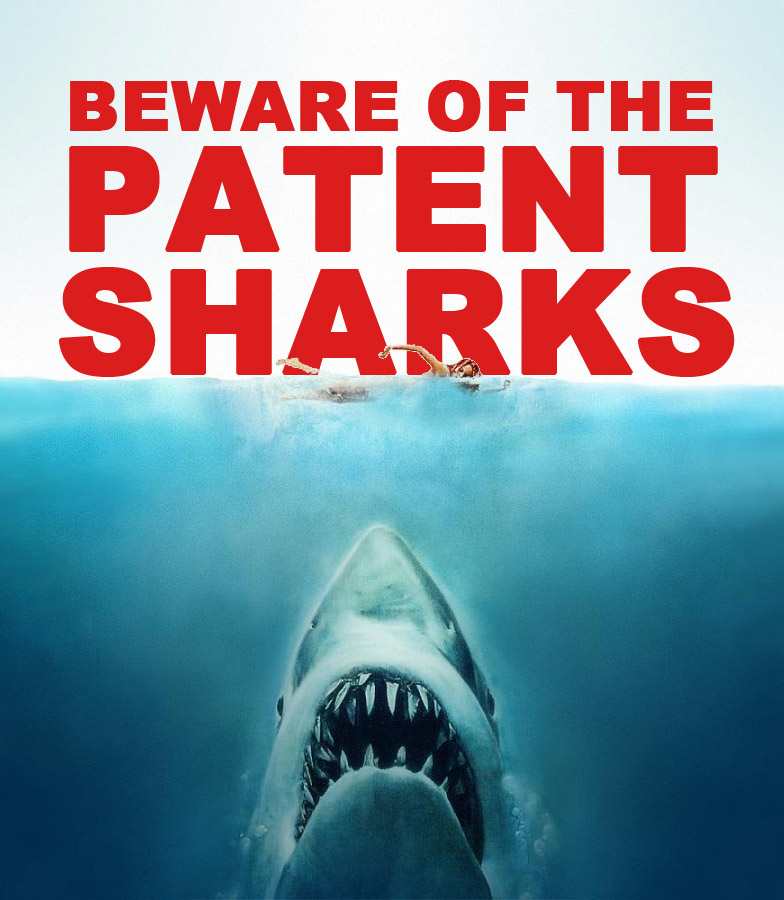IP & patents patents patents
It’s a tough topic, and even harder to navigate in these relatively uncharted digital waters. That’s right: IP. Luckily, we were joined by Jeff Schox, who runs a boutique law firm working exclusively with startups, and Anne DeGheest of MedStars and HealthTech Capital. It is impossible to cover the in-and-outs in 1 hour, but Jeff and Anne laid down the highlights for startups.
The Basics
A patent is an intellectual property right granted by the US government to an inventor “to exclude others from making, using, offering for sale, or selling the invention throughout the United States or importing the invention into the United States” for a limited time in exchange for public disclosure of the invention when the patent is granted. This public disclosure consists of complicated filings that take up to 4-6 years and costs around $40k. The patent department of the government even suggests that is best to prepare fillings with trained professionals.
So why file patents?
A popular answer is typically to enforce against a competitor, but it’s not the right one. There are really three main reasons that smart startups file patents:
- Increase leverage over a partner If you are only company with a patent or are licensing a patent of a highly valued lab test or technology, you have the golden ticket in negotiations with business partners.
- Stimulate an investment or acquisition Patents make a company much more desirable to an investment firm because they ensure exclusivity for the technology. In addition, it is credible proof that your idea is innovative and protected. Investors want to hear that you own your IP, or that you have a strategy and have taken steps to protect your rights. They also want to know that you have determined whether you infringe on any patent rights of your main competitors.
- Defer an infringement lawsuit In the fast paced world of mobile innovation, patent sharks lurk deep beneath small companies’ radars. Patent sharks make money by enforcing payment from companies that infringe upon their IP rights simply because the company did not know there was a patent for the technology they were utilizing. Patent sharks attack right when your company is valuable or tasty enough. Even a small bite can paralyze it. An investment into licensing approperiate patents upfront can protect you in the long run. Read more about the situation here.
One of the biggest misunderstandings of patent law is best understood through the case of the frosted lightbulb. We all attribute the invention of the lightblub to Thomas Edison. However, a man named Pipkin decided to frost it, giving us the nice ambient light we all enjoy today. On one hand, you have a pioneering invention and on the other you have a game-changing improvement to that invention. So, who can produce a frosted lightbulb?
If you guessed Edison, you would be wrong. If you think Pipkin is the winner, you are also incorrect. The correct answer is someone who licenses both patents.
While any innovative invention is patentable, it may infringe on an existing patent if they do not license it. For this reason, it is vital to know your competition and know what patents they use. Ignorance is not an good enough excuse against an infringement lawsuit. To protect yourself, identify your top 5 competitors and research the IP they own. Chances are you might be utilizing similar technologies, protect yourself by licensing now. While researching this topic is not easy, here is the ancient patent site that catalogs all patents from 1750-present.
Ready to take the IP plunge?
So while patents may be the golden ticket to leverage investments and protect from sharks, it doesn’t mean they are the right thing for your company. Carefully evaluate your risks, and better yet, have an early investor or trusted advisor balance them as well. There are four different risk levels that you should be aware of to see if you really have a million dollar idea worth the patent.
- Product Risk Do you have a new product and utility? Will you be able to effectively defend your IP and be able to show proof that you have a new concept? Researching competitors is vital to see if you are really on to something.
- Market Risk Who makes up your market, and is someone willing to pay? You can help cover your market risk with letters of intent and/or showing that you know the competition will respond. Consider bundling your idea with another to add market value.
- People Risk Do you want all A individuals on your team or do you want an A team? You want an A team. There needs to be good chemistry on the team because the stress and challenges will put a lot of pressure on the team, and you want it to hold strong. While most investors hope to make money, they also invest because they want to work with you.
- Financial Risk Do you have an exit strategy? You have to be reasonable with how much you need to exit and be aware of the Return vs. Risk.
After you assess your risks and you still want to continue with IP route it is time to get the expert advice. Patent lawyers are expensive but worth it.


